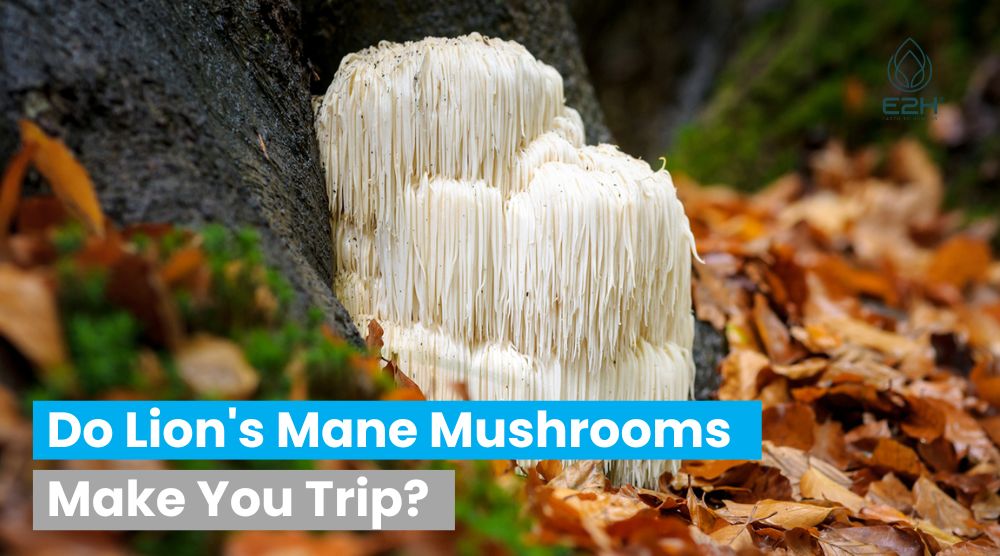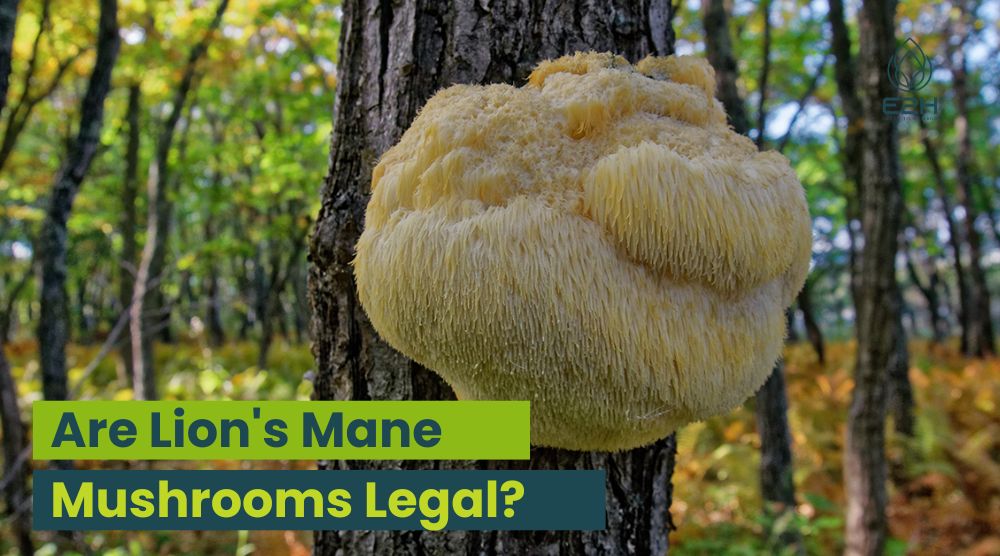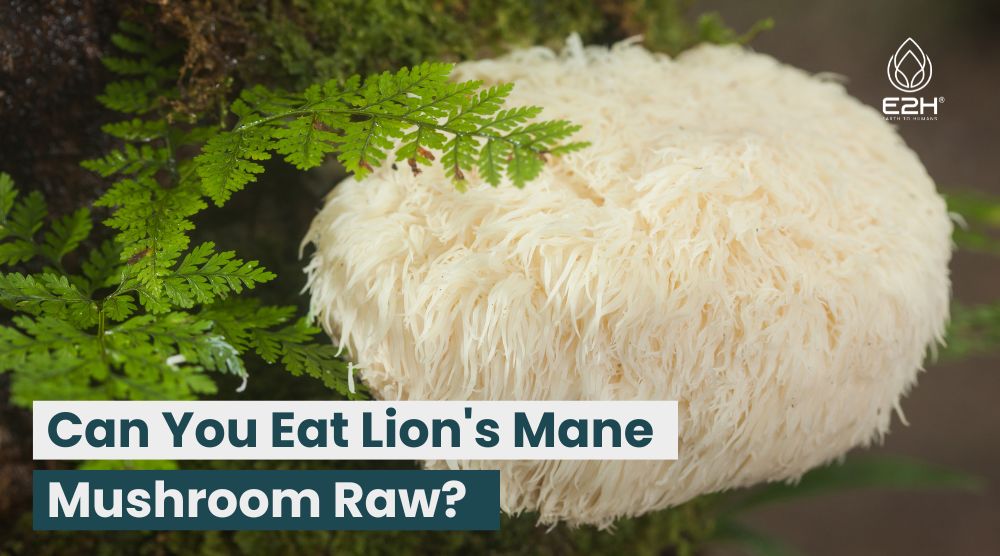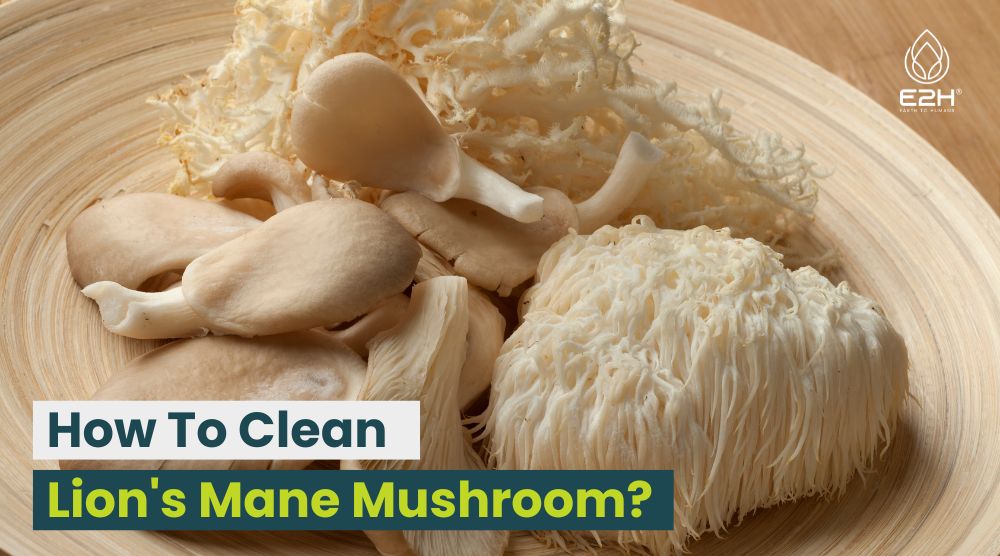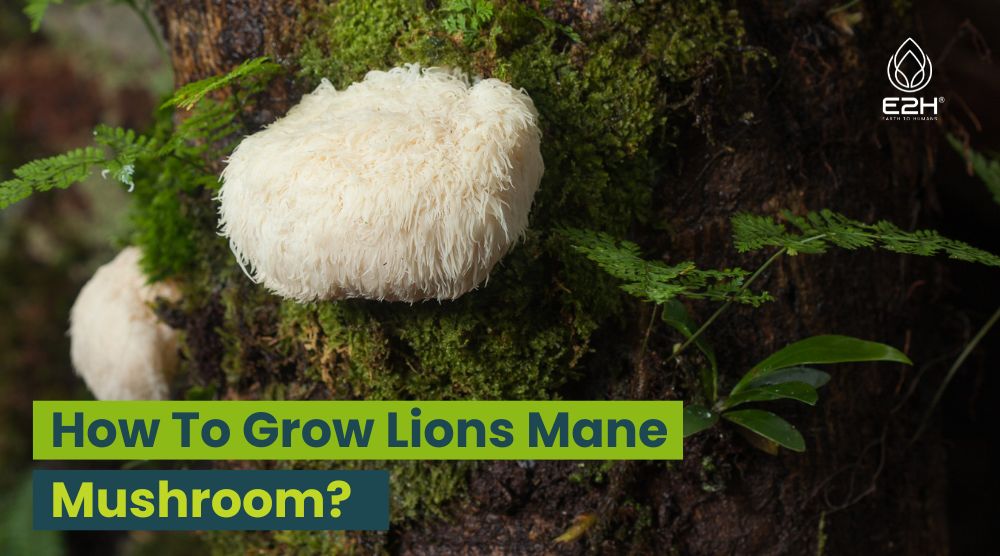Do Lion’s Mane Mushrooms Make You Trip: No, Lion’s Mane mushrooms do not make you trip or induce hallucinogenic experiences. They are non-psychedelic and are known for their cognitive-enhancing properties and potential health benefits.
The Effects of Lion’s Mane Mushrooms
Enhanced Cognitive Function
Lion’s Mane mushrooms have been the subject of scientific studies investigating their impact on nerve growth factor brain cells and cognitive function. Research suggests that these mushrooms may have the ability to stimulate the production of nerve growth factor (NGF), a protein essential for the growth and maintenance of nerve cells. By promoting NGF production new brain cells, Lion’s Mane mushrooms may support brain health and enhance cognitive abilities, including memory and focus.
Potential for Neuroprotection
Neurodegenerative diseases, such as Alzheimer’s and Parkinson’s, are characterized by the progressive loss of nerve cells. Lion’s Mane mushrooms have shown potential in protecting against neurodegeneration. Studies have indicated that the bioactive compounds found in Lion’s Mane mushrooms, such beneficial compounds such as hericenones and erinacines, possess neuroprotective properties and may help prevent neurodegenerative diseases or slow down the progression of these debilitating conditions.
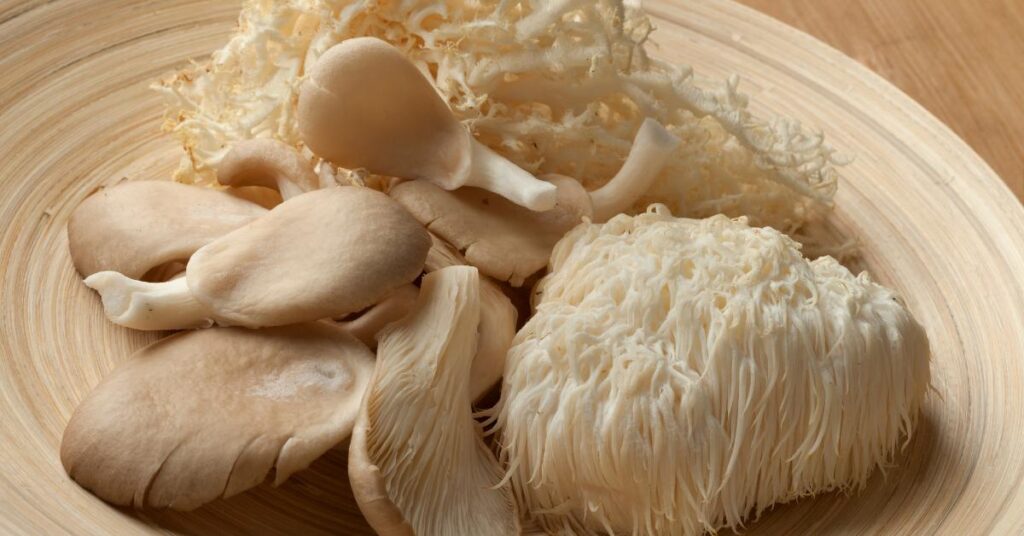
Improved Mental Well-being
In addition to their cognitive benefits, Lion’s Mane medicinal mushrooms have been linked to improved in mental health and well-being. Some users have reported experiencing reduced anxiety and depression symptoms after consuming Lion’s Mane supplements. While further research is needed to fully understand the mechanisms behind these positive effects,, Lion’s Mane mushrooms show promise in supporting overall mental health.
The Psychedelic Potential of Lion’s Mane Mushrooms
Psychedelic vs. Non-Psychedelic Mushrooms
It is important to differentiate between Lion’s Mane magic mushrooms, and other varieties psychedelic mushrooms known for their psychedelic properties, such as Psilocybin mushrooms. Unlike Psilocybin mushrooms, Lion’s Mane mushrooms do not contain the psychoactive compound psilocybin, which is responsible for inducing hallucinogenic experiences.
Presence of Psilocybin in Lion’s Mane Mushrooms
Lion’s Mane mushrooms do not naturally contain psilocybin or any other hallucinogenic compounds. They are classified as non-psychoactive mushrooms, meaning they do not produce mind-altering effects typically associated with psychedelic substances.
User Experiences and Reports
While Lion’s Mane mushrooms are not known for inducing psychedelic trips, individual experiences with psychedelic mushrooms and compounds may vary. Some users have reported mild perceptual changes or enhanced sensory perception after consuming Lion’s Mane mushrooms. However, these effects are generally attributed more research- to heightened cognitive and brain function rather than psychedelic experiences.
Clarifying the Misconceptions
Differentiating Lion’s Mane from Psilocybin Mushrooms
It is crucial to differentiate Lion’s Mane mushrooms from psilocybin-containing mushrooms to avoid confusion. Lion’s Mane mushrooms are distinct in appearance, typically characterized by white or cream-colored shaggy spines, while psilocybin mushrooms often have distinct cap and stem features with varying colors.
Lack of Hallucinogenic Properties in Lion’s Mane
To reiterate, Lion’s Mane mushrooms do not possess hallucinogenic properties. They are considered safe and suitable for consumption by individuals seeking cognitive benefits digestive health and overall well-being without the risk of psychedelic experiences.
Health Benefits Of Lion’s Mane Mushrooms
To experience these health benefits, consider incorporating Lion’s Mane mushrooms into your diet. Apart from their cognitive-enhancing effects, Lion’s Mane mushrooms offer several potential health benefits:
Nerve Regeneration
The bioactive compounds present in Lion’s Mane mushrooms have been shown to promote nerve cell regeneration and repair. This makes them a potential therapeutic option for individuals with nerve-related conditions, such as peripheral neuropathy.
Reduced Inflammation
Inflammation is a common underlying factor in various health conditions. Lion’s Mane mushrooms possess anti-inflammatory properties that may help reduce inflammation throughout the body, supporting overall cardiovascular health and well-being.
Enhanced Immune Function
Certain compounds found in Lion’s Mane mushrooms have demonstrated immunomodulatory effects, meaning they can help regulate and strengthen the immune system. By supporting the immune system function, Lion’s Mane and other mushrooms also may contribute to better overall health and increased resistance to infections.
Safe Usage and Precautions
While Lion’s Mane mushrooms are generally considered safe for consumption, it is essential to follow proper usage guidelines and take necessary precautions:
Recommended Dosage
The recommended dosage of Lion’s Mane mushrooms varies depending on the form of consumption, such as dried mushrooms, extracts, or supplements. It is advisable to follow the instructions provided by the manufacturer or consult a healthcare professional for personalized guidance.
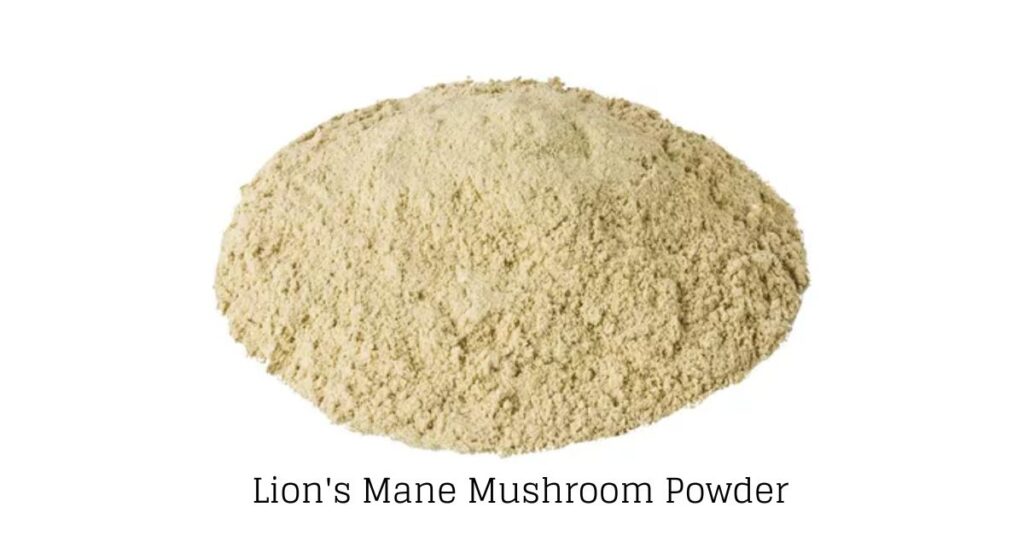
Potential Side Effects
Lion’s Mane mushrooms are well-tolerated by most individuals, with minimal reported side effects at high doses. However, some individuals may experience mild digestive discomfort, such as an upset stomach or diarrhea, when consuming higher doses. If any adverse reactions occur, it is recommended to discontinue use and consult a healthcare professional.
Consultation with Healthcare Professionals
Before incorporating Lion’s Mane mushrooms into your diet or supplement regimen, it is advisable to consult with a healthcare professional, especially if you have any underlying medical conditions, are taking medications, or are pregnant or breastfeeding.
How does Lion’s Mane make you feel?
Lion’s Mane mushroom is known for its potential cognitive-enhancing properties. When consumed, it may promote mental clarity, focus, and memory retention. Some individuals report an overall sense of well-being and improved mood. However, the effects can vary from person to person, and more scientific research is needed to fully understand its impact on mood brain health, and cognition.
Is Lion’s Mane mushroom a drug?
No, Lion’s Mane medicinal mushroom, is not classified as a drug. It is a natural edible fungus that has been used for centuries in traditional medicine, particularly in Asian countries. Lion’s Mane contains bioactive compounds, such as hericenones and erinacines, which are believed to contribute to its potential health benefits. However, it does not possess psychoactive properties and is not considered a recreational drug.
What happens if you eat a lot of Lion’s Mane?
Consuming a larger amount of Lion’s Mane mushroom is generally considered safe. However, it’s important to note that individual tolerance and sensitivity to psychedelic mushroom can vary. In rare cases, some individuals may experience mild digestive discomfort, such as an upset stomach or diarrhea, if they consume lion’s mane mushroom extract excessive amounts. It is advisable to start taking lion’s mane mushrooms with smaller servings and gradually increase the intake to assess personal tolerance levels and minimize any potential digestive issues.

Can Lion’s Mane have negative effects?
Lion’s Mane mushroom is generally well-tolerated and considered safe for most individuals when consumed in moderate amounts. However, some individuals may be allergic or sensitive to mushrooms, including Lion’s Mane. Allergic reactions could include symptoms such as itching, rash, or respiratory distress.
Additionally, there have been isolated reports of adverse effects, such mild symptoms such as skin irritation, when Lion’s Mane extract is applied topically. As with any dietary supplement, it is recommended to consult with a healthcare professional before adding Lion’s Mane to your routine, especially if you have any underlying health conditions or are taking medications.
Lion’s Mane Side Effects, Dosage & How Long Before Results
FAQs
Are Lion’s Mane mushrooms legal?
Yes, Lion’s Mane mushrooms are legal to cultivate, sell, and consume in most countries. However, it is always recommended to check the local regulations before purchasing or using them.
Can Lion’s Mane mushrooms be consumed raw?
While Lion’s Mane mushrooms can be consumed raw, they are often cooked or used in supplement form for easier digestion and to unlock their bioactive compounds.
Can Lion’s Mane mushrooms interact with medications?
Lion’s Mane mushrooms are generally considered safe, but they may interact with certain medications. It is advisable to consult with a healthcare professional if you are taking any medications.
How long does it take to experience the effects of Lion’s Mane mushrooms?
The effects of Lion’s Mane mushrooms may vary depending on the individual and the form of consumption. It may take a few weeks of consistent use to notice cognitive improvements.
Can Lion’s Mane mushrooms be used as a replacement for medical treatment?
While Lion’s Mane mushrooms have potential health benefits, they should not be used as a replacement for medical treatment. If you have any medical conditions, it is important to consult with a healthcare professional for appropriate guidance.
Conclusion
In conclusion, Lion’s Mane mushrooms do not make you trip or induce hallucinogenic experiences. However, these mushrooms offer significant potential benefits in enhancing cognitive function, promoting neuroprotection, and improving gut health and mental well-being. Lion’s Mane mushrooms are a safe and natural option for individuals seeking both cognitive health benefits and overall gut health and support. As with any dietary supplement, it is essential to follow recommended dosages, be aware of potential side effects, and consult with healthcare professionals when necessary.
